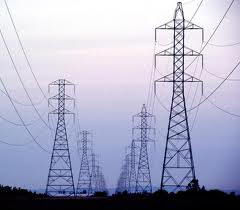Government Energy Aggregation (GEA)

In 2003, Utility Advantage was hired by the NJ Board of
Public Utilities to develop the government energy aggregation
rules that were adopted in July 2003 and are still in effect today. With this expertise, Utility Advantage is uniquely qualified to provide energy consulting services to assist governments in evaluating and implementing Government
Energy Aggregation (GEA) Programs.
Public Utilities to develop the government energy aggregation
rules that were adopted in July 2003 and are still in effect today. With this expertise, Utility Advantage is uniquely qualified to provide energy consulting services to assist governments in evaluating and implementing Government
Energy Aggregation (GEA) Programs.
Overview
A GEA program allows municipalities, working alone or in a group, to aggregate the energy requirements of residential, commercial and
municipal accounts so that the GEA program can purchase energy supply from non-utility sellers of electricity and gas supply (Third Party Suppliers) at prices lower than the average utility price, with the possibility of added benefits such as higher renewable energy content.
Multi-government energy aggregation programs
Municipalities and County governments may join together to purchase energy and related services. NJ local public contracts law provides instruction for joint purchasing and supports the utilization and creation of cooperative pricing systems to facilitate the process. Many County governments are taking the lead agency role and some have even joined together with neighboring counties to increase the size of their aggregation group.
Government-private energy aggregation programs
These programs combine the government facilities with those of residential and/or non-residential customers. The non-residential(business/institutional) customers must choose to voluntarily participate in the program. Residential customers are only allowed to “opt-out” of
the program. This means that they are committed to participate by the town resolution, but at any time a resident can choose to discontinue participation.
Keys to a successful government energy aggregation program
1 ) Education of the government leaders and participants is critical to the development of a successful program. The marketing plan should be
designed for residents and businesses.
2) Aggregation produces better pricing. Suppliers prefer larger groups of similar customers to most effectively manage in an aggregation group. This means residential customers will benefit from pooling together to increase their savings. Small to large size business, government and institutional customers that “opt-in” will be aggregated in their own pool.
3) Monitor market timing. The timing of the bid is perhaps the most critical element to a successful energy bid. The energy market is volatile and savings will be dramatically impacted by market conditions.
4) Consider including natural gas, electricity, renewable energy and energy services in your aggregation program to create a comprehensive
program.
5) Work with an experienced energy consulting firm to implement a successful program
municipal accounts so that the GEA program can purchase energy supply from non-utility sellers of electricity and gas supply (Third Party Suppliers) at prices lower than the average utility price, with the possibility of added benefits such as higher renewable energy content.
Multi-government energy aggregation programs
Municipalities and County governments may join together to purchase energy and related services. NJ local public contracts law provides instruction for joint purchasing and supports the utilization and creation of cooperative pricing systems to facilitate the process. Many County governments are taking the lead agency role and some have even joined together with neighboring counties to increase the size of their aggregation group.
Government-private energy aggregation programs
These programs combine the government facilities with those of residential and/or non-residential customers. The non-residential(business/institutional) customers must choose to voluntarily participate in the program. Residential customers are only allowed to “opt-out” of
the program. This means that they are committed to participate by the town resolution, but at any time a resident can choose to discontinue participation.
Keys to a successful government energy aggregation program
1 ) Education of the government leaders and participants is critical to the development of a successful program. The marketing plan should be
designed for residents and businesses.
2) Aggregation produces better pricing. Suppliers prefer larger groups of similar customers to most effectively manage in an aggregation group. This means residential customers will benefit from pooling together to increase their savings. Small to large size business, government and institutional customers that “opt-in” will be aggregated in their own pool.
3) Monitor market timing. The timing of the bid is perhaps the most critical element to a successful energy bid. The energy market is volatile and savings will be dramatically impacted by market conditions.
4) Consider including natural gas, electricity, renewable energy and energy services in your aggregation program to create a comprehensive
program.
5) Work with an experienced energy consulting firm to implement a successful program
UA President Laurie Wiegand-Jackson is quoted in NJ League of Municipalities magazine for Government Energy Aggregation expertise
| government_aggregation_article_njlm_2013.pdf | |
| File Size: | 878 kb |
| File Type: | |
